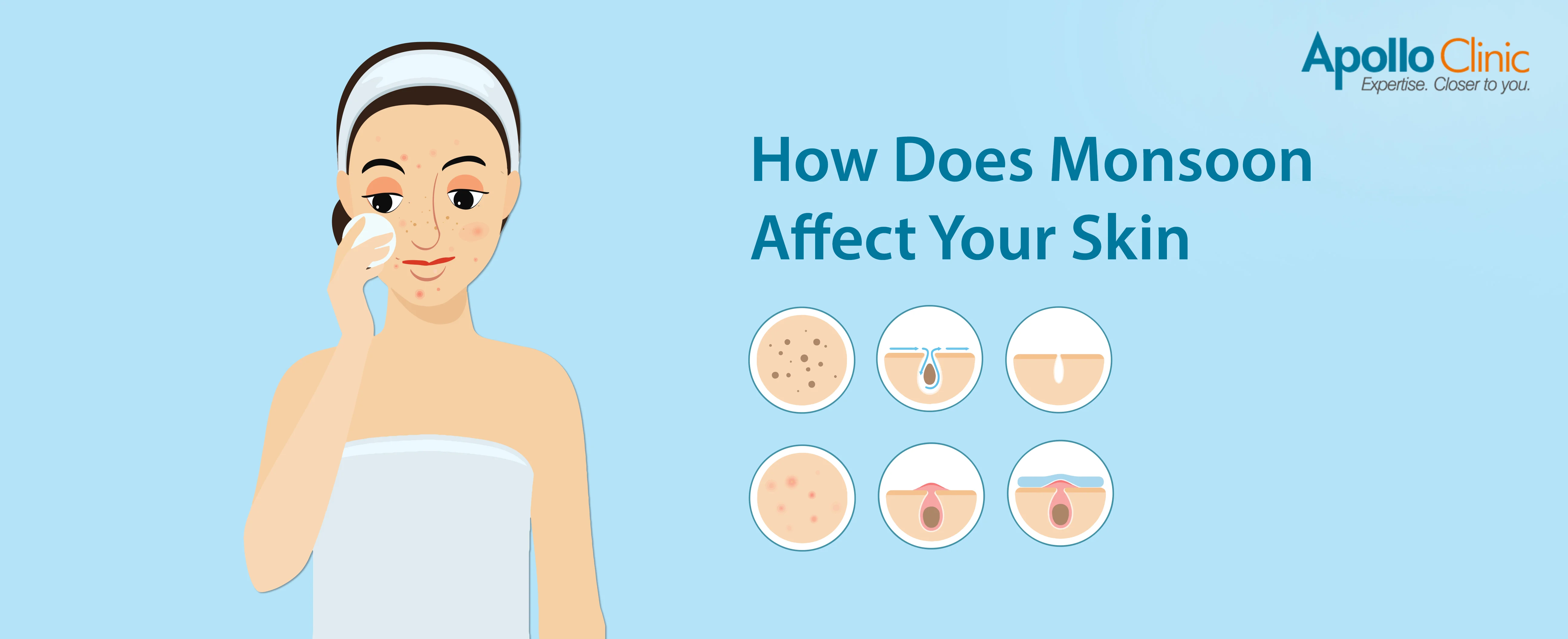How Does Monsoon Affect Your Skin
Every coin has two sides and so does monsoon. On one hand, it brings the joy of rains. On the other hand, it also brings an array of bacterial and fungal skin infections. Continue reading to know how the rainy season leads to skin issues and all the tips for skin care during monsoon.
During monsoon, our skin keeps fluctuating from being oily to dry because of the drastic changes in the humidity levels in the atmosphere. When it becomes too humid and stuffy, your skin becomes prone to excessive oil and sweat. If you don’t wash your face 3 to 4 times a day, the oil in the pores become a perfect magnet attracting dust, dirt and bacteria present in the air. What happens then? An outbreak of blackheads, whiteheads and pimples is what follows. That’s why people with oily skin should be more careful.
Ironically, monsoon is also the time when the skin tends to get dry on account of dehydration because a lot of water content is lost due to excessive sweating. People who suffer from hyperhidrosis (excessive sweating) should be more alert to avoid body odour. Drink at least 7 to 8 glasses of water to keep yourself hydrated and your skin free from flaky dryness. But this doesn’t mean that getting wet in the rain is beneficial for the skin. On the contrary it can harm your skin.
Since humidity encourages the growth of the various bacteria and fungi, getting drenched in the rain often or wearing wet clothes and shoes for a long time can lead to the same bacteria and fungi growing on your skin.
This can lead to monsoon skin problems like:
- Athlete’s foot: itchy, flaky, white blisters and cracks appearing between the toes and under the feet. It is not dangerous but is a communicable fungal disease. As per Safia Tanyeem, Dermatologist, Apollo Clinic, Koramangala, “In order to prevent it, keep your feet dry and clean them thoroughly if they come in contact with rain water. Make sure to clean and dry your shoes too.”
- Tinea fungal infections: these include itchy and highly communicable skin issues like ringworms (skin infection in body folds like armpits, thighs, etc); tinea capitis (itchy and flaky scalp) and onychomycosis (fungal infection in the nails causing them to become brittle and crumbly).
- Pyoderma: skin infection that also has pus.
- Impetigo: highly contagious bacterial infection that leads to red sores.
- Scabies: infectious skin condition when tiny mites burrow into skin causing rashes and itch.
- Eczema: Skin becomes highly dry, itchy and red. Asthma patients are more prone to it.
If you experience any of these aforesaid conditions, visit a doctor immediately before you damage you skin further and before it spreads to people around you. To meet expert dermatologists, visit your nearest Apollo Clinic. Stay clean and stay hydrated to reduce the side effects of monsoon on your skin.

